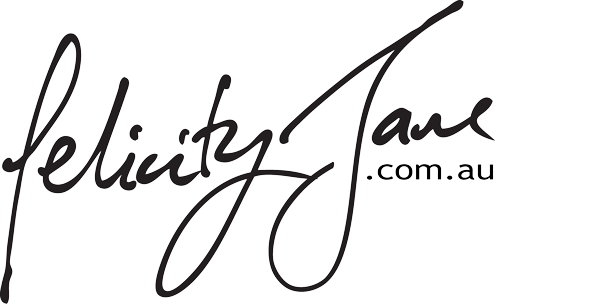Approximately two-thirds of Chief Economists project a worldwide recession by 2023, with inflation casting ripples across the global economic landscape. This impending—and for some, already present—economic decline is steering business and industry leaders into uncharted territories, provoking queries about the viability of digital marketing in these uncertain times.
On the other hand, experienced people in the industry strongly suggest that it’s not wise to stop using digital marketing during a recession. They say that even if fewer people are buying things, customers keep looking for products and services online.
Indeed, digital marketing might be the most prudent investment you can make amidst an economic downturn. It presents a golden opportunity to position your offerings before those who are actively seeking them or those who comprise your target market segment.
Most experts agree that digital marketing efforts are the best way to protect businesses during a downturn in the economy. So, creating and using a successful digital marketing plan becomes a very important part of this situation.
“Recession does not mean the end of consumption, it merely alters the dynamics. Consumers continue to buy, but with more caution and discernment. This is why businesses must not only continue but also adapt their marketing strategies to speak effectively to a more careful consumer.”
Recession Psychology
Recession psychology refers to the mindset and behaviour changes that occur in individuals and businesses during an economic downturn. It’s vital to understand this because it can significantly impact consumer behaviour, business strategies, and overall economic recovery.
Here’s a closer look:
1. Fear and Uncertainty
During a recession, fear and uncertainty are prevalent. Consumers may worry about job security and financial stability, leading to reduced spending and increased saving. Businesses might also become risk-averse, cutting back on investments and expansion plans.
2. Shift in Spending Habits
Consumers tend to prioritize essential goods and services over luxury items during a recession. There’s also a shift towards value-for-money products as people seek to make their money go further.
3. Increased Focus on Debt Reduction
Both consumers and businesses often focus on reducing debt during a recession. This can lead to decreased spending and slowed economic activity, but it can also result in stronger financial health in the long term.
4. Changes in Investment Behaviour
Investors may become more cautious during a recession, favouring safer investment options over higher-risk, higher-return investments. This can affect the flow of capital in the economy.
5. Psychological Impact on Mental Health
Recessions can lead to increased stress, anxiety, and depression due to financial strain and job insecurity. This can affect productivity, consumer behaviour, and overall societal well-being.
Understanding recession psychology can help businesses better navigate through economic downturns. By acknowledging these shifts in behaviour and mindset, businesses can adapt their strategies to meet changing consumer needs, manage their resources effectively, and position themselves for success when the economy recovers.
Prioritisation of Consumption During Economic Downturns
During an economic downturn, consumers, regardless of their financial situation or consumption behaviour, tend to prioritize their consumption by sorting products and services into four categories: Essentials, Treats, Postponables, and Expendables. Here’s a closer look at these categories:
1. Essentials
Essentials are items that are necessary for survival or are perceived as central to well-being. This category includes goods and services like food, housing, healthcare, and utilities. During a recession, spending on essentials is often maintained or even increased, as these items are deemed non-negotiable.
2. Treats
Treats are indulgences whose immediate purchase is considered justifiable. These are not essential for survival but provide emotional comfort or a sense of reward. Examples might include a favourite coffee from a cafe, a new book or movie, or a beauty product. During a recession, consumers may still purchase these items but might do so less frequently.
3. Postponables
Postponables are items that are needed or desired, but their purchase can be reasonably put off. This could include larger investments like home renovations, expensive electronics, or vacations. In times of economic uncertainty, consumers often delay purchasing these items until their financial situation feels more secure.
4. Expendables
Expendables are perceived as unnecessary or unjustifiable. These might be luxury goods, high-end services, or other items viewed as extravagant or frivolous. During a recession, these are often the first items consumers cut from their budgets.
Understanding these categories can help businesses adjust their strategies during a recession. For example, they might focus on promoting the essential nature of their products, offering smaller, more affordable ‘treat’ options, or finding ways to move their products from the ‘postponable’ or ‘expendable’ categories into the ‘essential’ or ‘treat’ categories.
Consumer Psychology in a Recession: Tailored Marketing Tactics for Diverse Spending Groups
Consumer psychology during a recession varies widely depending on the financial stability and mindset of each consumer group. Here are some marketing tactics for each group:
Slam on the Brakes: This group feels the most economic pressure and reduces all types of spending. They tend to prioritize essentials and eliminate most, if not all, treats, postponables, and expendables. Marketers can appeal to this group by emphasizing value, durability, and practicality. For instance, promoting bulk-buy discounts or products that serve multiple purposes can be effective.
-
- Essentials: Focus on affordability and long-lasting value.
- Treats: Position cheaper products as ‘luxury’ or ‘treat-yourself’ items.
- Postponables: Highlight the long-term benefits of investing now.
- Expendables: Showcase how the product can save money in the long run.
Pained but Patient: This group also reduces spending but less drastically. They’re more optimistic about the future and believe their financial situation will improve. They cut back on expendables and postponables, but still indulge in occasional treats.
-
- Essentials: Emphasize quality over quantity.
- Treats: Offer special deals or limited-time offers to encourage splurging.
- Postponables: Provide flexible payment options or layaway plans.
- Expendables: Market these items as investments towards future savings.
Comfortably Well Off: This group maintains their standard of living, continuing to spend on essentials and treats, but may postpone or reconsider big-ticket items. They are the prime target for high-quality items and premium services.
-
- Essentials: Promote premium quality and exclusivity.
- Treats: Offer personalized or unique experiences.
- Postponables: Showcase the long-term value and prestige of owning the product.
- Expendables: Leverage luxury branding and superior product features.
Live for Today: This group continues their spending habits, unaffected by the economic downturn. They often prioritize experiences and are likely to continue spending on treats and essentials, while postponables and expendables may see some reduction.
-
- Essentials: Stress convenience and trendiness.
- Treats: Market new, exciting experiences or products.
- Postponables: Use FOMO (fear of missing out) marketing strategies.
- Expendables: Highlight the fun or unique aspects of the product.
Observing and understanding the spending behaviours of these different groups during a recession can help businesses tailor their marketing strategies effectively. It’s crucial to empathize with consumers’ concerns and align marketing messages with their changing needs and expectations.
In understanding the intricacies of consumer psychology as we approach a recession is a critical asset for businesses. It allows you to not only weather the storm but also seize opportunities that such challenging times may present. As consumers’ financial realities shift, so too do their spending habits and priorities. By recognising this and adapting marketing strategies to cater to these changing needs, businesses can retain relevance and ensure they continue to provide value. Whether it’s focusing on affordability for those who ‘slam on the brakes’, or emphasizing luxury for the ‘comfortably well off’, understanding and responding to these shifts can be the key to maintaining customer relationships and business performance during a recession.







